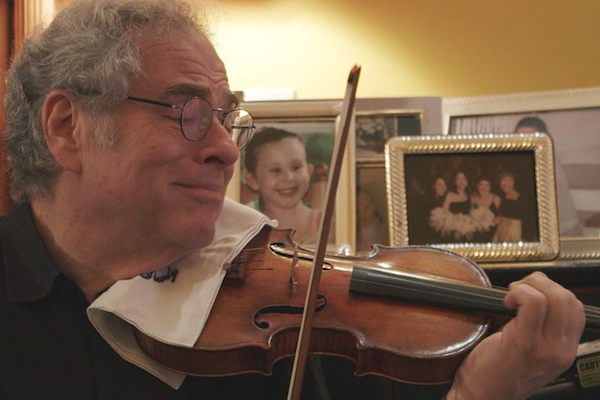
'Itzhak' presents a merry Jew, a fine fiddler
By Martha K. Baker
There he is, that familiar smiling face, those curls, that violin with only a cotton hanky between chin and wood. When Itzhak Perlman sits and plays, he manages the double meaning of "play," that is, to produce musical sound and to have a whale of a good time doing it.
Alison Chernick's biopic of Perlman is a treasure, a rich combination of new film and old stills, a tour of a New York apartment and a glance at an old unit in Jerusalem, of old words and new, taught and learned.
Perlman was born in Tel Aviv in 1945. When he came to America at 13, he knew no English, only the violin, which his unmusical parents had sacrificed to exploit his God-given talents. Given that their son had polio when he was four, his folks reminded him that, if he had talent, he should use it because he wasn't "going to be a tennis player."
Perlman used it. He used his talent to play and to teach, and he uses it still to serve others, including the disabled.
Chernick shows Perlman in album photos as well in Israel. She shows him at violin shops, at master classes, at home with his dogs, waiting for his acolytes to shovel snow so he can scooter through. She shows Toby, Perlman's violin-playing wife of 50 years, still terribly in love with him, and with music and with his music. Toby is far too aware of the camera, but Itzhak, accustomed to the lit eye of the recorder, relaxes in front of it, just another audience and reviewer.
One expects brilliance in a biography of Itzhak Perlman, color as only music can paint, for Perlman is a virtuoso on the violin. One does not expect color to unfurl in the red of Toby's Chinese kimono or the rose of Itzhak's silk jacket, the yellow fringe on a chaise, the blues and browns of old violin cases.
Through this fine and joyful documentary, Chernick enriches Itzhak Perlman, a funny, voluble, knowledgeable, deeply Jewish violinist.


